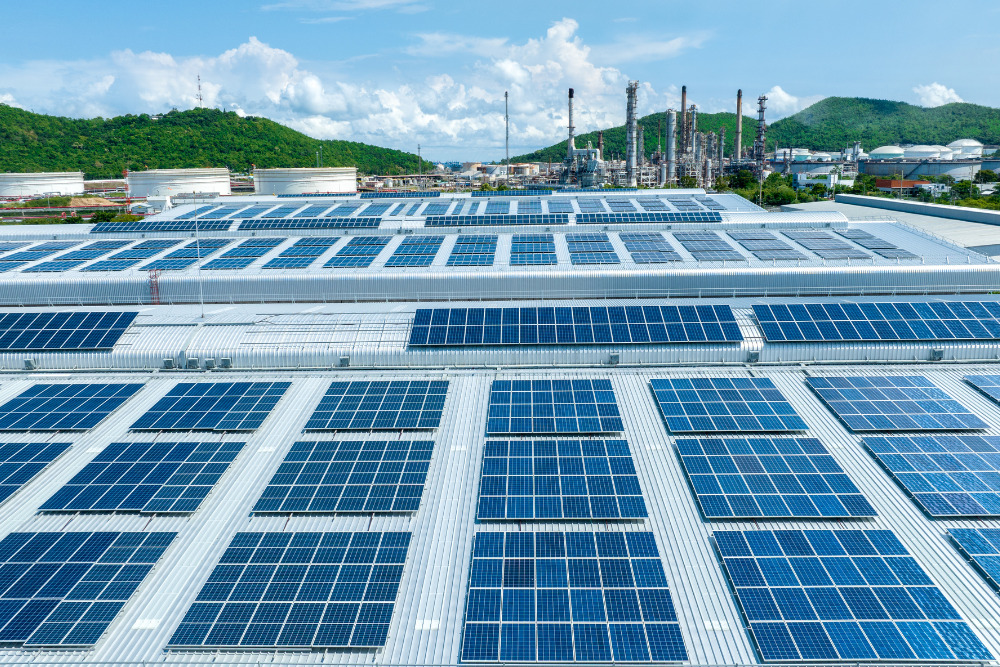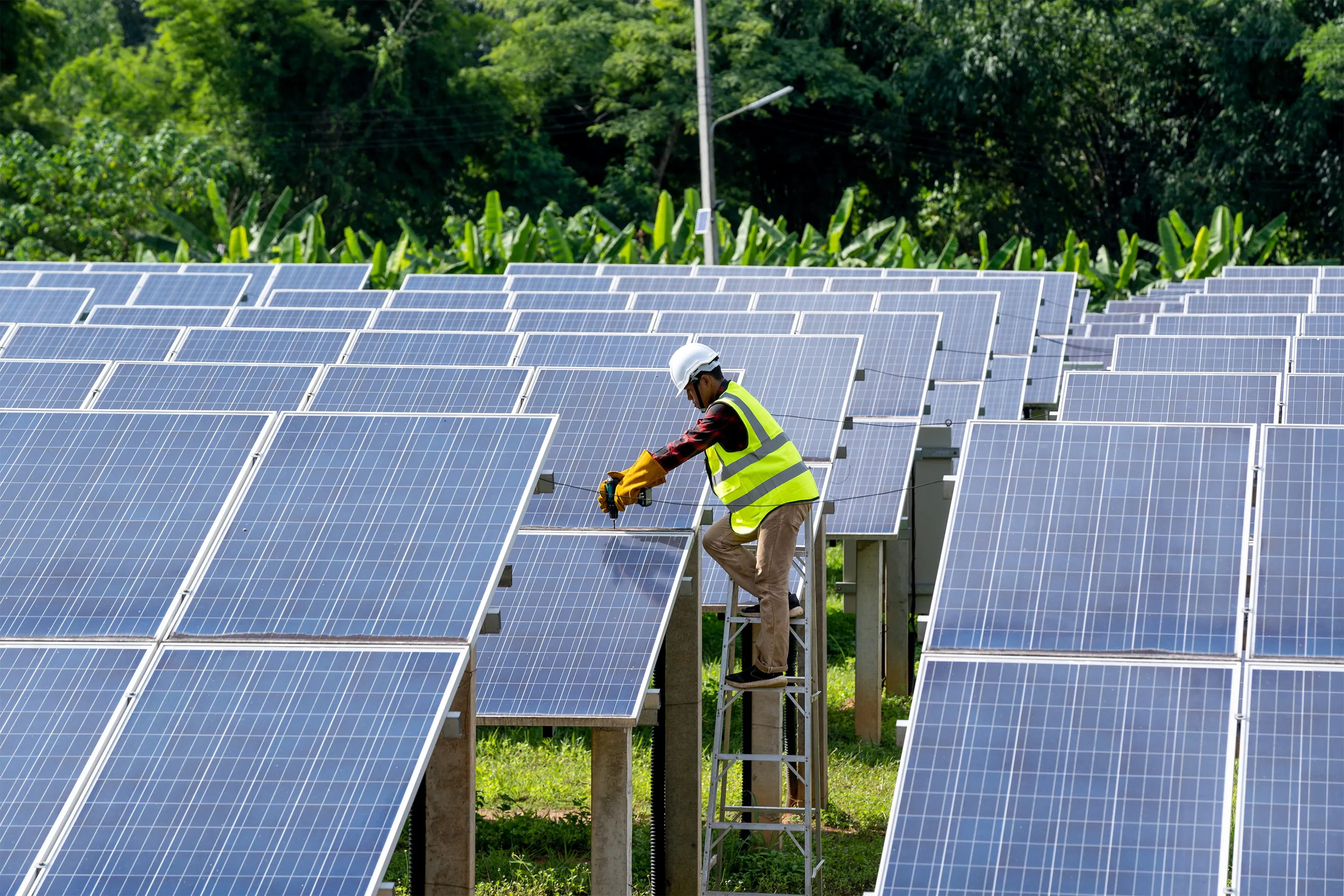The Only Guide for Commercial Solar Panels Virginia
The Only Guide for Commercial Solar Panels Virginia
Blog Article
Solar Installers in Virginia: Lumina Solar Specializes In Supplying Advanced Photovoltaic Solutions For Residences And Businesses
History and Establishing
Have you ever wondered how a solar panel company springs from check here a simple spark of inspiration into a powerhouse of eco-friendly energy? It typically starts with a vision-- one fueled by a mix of development, decision, and a pinch of serendipity. The journey of lots of solar business mirrors the development of the technology itself: from large, ineffective panels to sleek, high-efficiency marvels utilizing the sun's bounty.
The Early Days
In the late 20th century, when solar power was still a specific niche concept, pioneers planted seeds for what would end up being a worldwide movement. Envision a small workshop filled with curious engineers, relentlessly experimenting with solar batteries. Their passion was palpable, typically driven by a desire to fight climate modification and decrease reliance on fossil fuels.
One such anecdote is about a creator who, inspired by an outdoor camping trip, understood that even in remote areas, the sun might power important devices. This easy observation sparked a business's mission to democratize access to tidy energy.
Founding Concepts

- Innovation: Constantly pushing the limits of solar innovation to enhance efficiency and sturdiness.
- Sustainability: Dedicating to eco-friendly production and reducing carbon footprints.
- Ease of access: Making renewable resource solutions affordable and useful for daily users.
Milestones in Growth
| Year | Key Occasion |
|---|---|
| 1985 | Company founded in a small garage, focusing on research and advancement. |
| 1995 | Business solar panel item launched, acquiring regional attention. |
| 2005 | Broadened to global markets, welcoming international renewable resource objectives. |
| 2015 | Presented innovative photovoltaic panel technology with improved energy conversion. |
Isn't it interesting how these incremental actions, often ignored, shape the energy landscape today? The solar panel business story is not simply about technology; it has to do with an unrelenting mission for a brighter, cleaner future.

Innovations in Solar Panel Technologies
Ever observed how some photovoltaic panels gleam brighter and last longer? It's not magic; it's the science of photovoltaic performance. Modern photovoltaic panel business invest greatly in technologies like bifacial cells, which record sunshine from both sides, enhancing energy harvest without broadening roof area. Have you ever questioned why some panels carry out much better on cloudy days? That's due to advances in thin-film solar technology, which grows under diffused light conditions.
Product Variations Tailored to Distinct Needs
One size never fits all. Photovoltaic panel companies now provide:
- Monocrystalline panels for maximum performance and streamlined aesthetic appeals, perfect for space-constrained rooftops.
- Polycrystalline panels, which use an affordable alternative without compromising excessive output.
- Building-integrated photovoltaics (BIPV), merging solar tech flawlessly into architectural aspects like windows and facades.
Picking the ideal item isn't simply about in advance expense; it has to do with matching your environment, energy objectives, and long-term cost savings. For example, homes shaded by trees require panels that stand out in low-light circumstances, something lots of ignore until energy costs climb up unexpectedly.
Technical Tips for Ideal Choice
- Evaluate the temperature level coefficient-- lower worths imply panels lose less efficiency on hot days.
- Search for panels with improved anti-reflective coatings to optimize light absorption.
- Consider the panel's warranty not just for defects, but for ensured power output over years.
- Do not ignore the value of the inverter technology coupled with the panels; it can make or break your system's performance.
Beyond Panels: Emerging Trends
Picture photovoltaic panels that adjust their angle instantly to chase the sun-- tracking systems are ending up being more accessible, increasing yield substantially. Or solar tiles that mix invisibly into your roofline, changing your home into a silent, self-dependent power generator. These developments are improving what a solar panel company provides-- not just products, but integrated energy solutions.
Market Existence and Global Operations
Ever question why some solar panel companies seem to grow up in every corner of the world while others hardly make a ripple? The difference lies not simply in innovation but in mastering the art of navigating varied markets. Expanding internationally resembles planting seeds in different environments-- you should understand each environment's distinct conditions to prosper.
Take, for circumstances, the intricate dance of logistics and supply chain management. Shipping panels halfway throughout the world isn't simply about distance; it has to do with timing, customizeds, tariffs, and adapting to regional demand fluctuations. A business with robust worldwide operations anticipates these variables, making sure panels get here on schedule without pumping up costs. This insight is no small task and often separates industry leaders from fans.
Secret Strategies for Expanding Market Presence
- Localized manufacturing: Developing production hubs near target audience reduces shipping delays and import complexities.
- Strategic partnerships: Collaborating with local companies speeds up market penetration and constructs trust.
- Adaptive item style: Tailoring solar panel tech to weather, sun intensity, and infrastructure subtleties improves performance and approval.
What about the human element? Photovoltaic panel companies operating worldwide should fix up cultural differences and regulative subtleties without losing sight of their core objective. What works in a sun-drenched desert might fail in a damp coastal area. Sometimes, the most ingenious option is merely listening-- absorbing regional insights to improve technology and method.
Specialists often encourage a phased rollout instead of a shotgun expansion. Why risk overextension when determined growth builds sustainable momentum? Scaling carefully implies balancing aspiration with operational strength - Solar Panel Company Virginia. After all, in the race for sustainable energy supremacy, patience can be as important as speed
Environmental Effect and Sustainability Practices
When photovoltaic panels first emerged, lots of assumed they carried absolutely no ecological baggage. Nevertheless, the reality is more nuanced. The production of photovoltaic cells involves rare earth metals and energy-intensive procedures, which can leave a large carbon footprint before the panels even reach roofs. The real environmental expense depends heavily on the sustainability practices used by the photovoltaic panel company throughout the lifecycle of their items.
How often do we stop briefly to consider what takes place to photovoltaic panels at the end of their useful life? Unlike batteries or electronics, photovoltaic panels can last 25-30 years, however disposal and recycling pathways remain underdeveloped in many areas. A business committed to minimizing environmental damage will have a robust prepare for recycling photovoltaic materials, restoring important silicon, glass, and metals to avoid land fill build-up.
Secret Sustainability Techniques
- Using low-impact manufacturing techniques that decrease water and energy consumption.
- Carrying out closed-loop systems to recycle production waste back into brand-new panels.
- Participating in transparent supply chain audits to make sure ethical sourcing of raw materials.
- Designing panels for easier disassembly to aid future recycling efforts.
It's worth keeping in mind that some solar business have pioneered innovative methods, such as incorporating eco-friendly components or utilizing less hazardous chemicals throughout fabrication. This not only minimizes ecological pressure but also sets a precedent for the industry. The question stays: can the solar industry genuinely pivot towards a circular economy design without compromising effectiveness or affordability?
Expert Tips for Evaluating Sustainability
- Inquire about the business's dedication to carbon-neutral production and whether they balance out emissions.
- Investigate if they partner with accredited recycling centers dedicated to photovoltaic panel waste.
- Try to find transparency reports detailing environmental effects and sustainability objectives.
- Consider the durability and guarantee of panels as an indirect step of resource efficiency.
In the end, selecting solar energy ought to imply more than just slashing electrical power bills; it's about supporting a future where energy is gathered responsibly and waste is attentively handled. Solar panel business that embrace this approach not just illuminate homes but also cast a brighter light on sustainable innovation.
Report this page